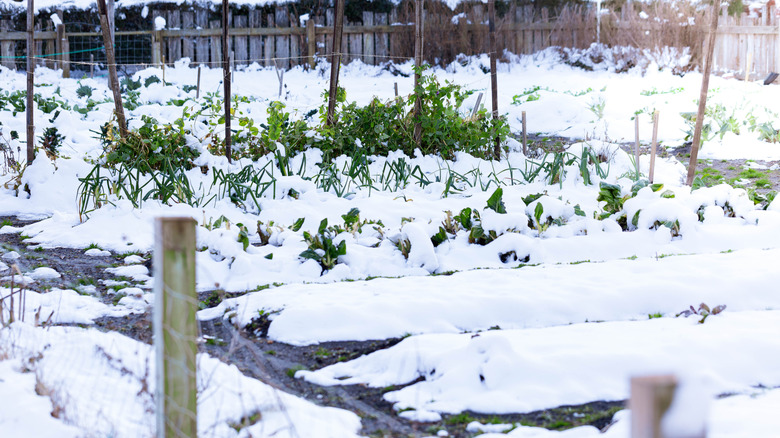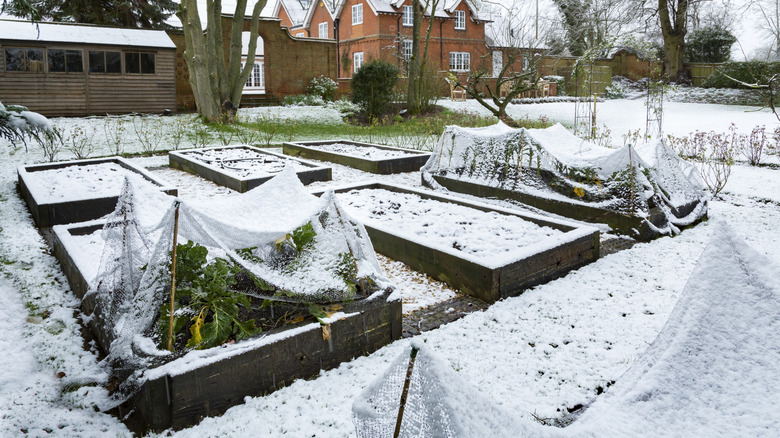Leave Your Soil Alone During The Winter: Here's Why
After the end of the growing season, many gardeners are ready for a rest until spring. You may decide to take it easy, but your garden won't. It will spend the winter engaging in a major self-improvement project in which teeming microorganisms are cycling nutrients, fixing nitrogen, suppressing pests and diseases, and much more. These fungi, bacteria, and other microscopic critters remain active until the soil freezes, though their activity may slow down.
The plants' deeper roots may still be growing in the relatively warm soil of early winter. At the same time, the organic materials around the plants are decomposing, which will result in robust and healthy spring soil.
If you feel like your soil is doing the brunt of the work and you should head out and give it some help, resist the temptation. As long as you have done everything recommended to prepare your garden for winter — such as adding materials like biochar in the fall in addition to plenty of compost and mulch — you can put your feet up and relax, knowing your soil and its tiny guests are working for you.
Let your soil do its own work over the winter
A few soil-related activities should definitely not take place over the winter. During the thaw portion of the freeze and thaw cycle, don't be tempted to work on or even walk on wet soil, as you will risk compacting it. Don't fertilize in the winter, either, as this may delay dormancy. (Plants, especially perennials, have periods of cold weather dormancy, so you'll want to know how to maintain your dormant plants in the winter.)
Envision a "do not disturb" sign in your winter soil. Try not to disturb the soil in any way, and especially don't disturb it by digging or tilling. These disturbances damage soil structure, make erosion more likely, and reduce the soil's productivity. In fact, you might want to think twice before tilling your garden at any time.
As temperatures get colder, the activity in your soil will decrease, but your plants will continue protecting their vitality by conserving organic material. The soil will freeze to deeper levels if the freezing temperatures persist. If you find yourself unable to stay out of the garden this winter, frozen soil might just do the trick!

